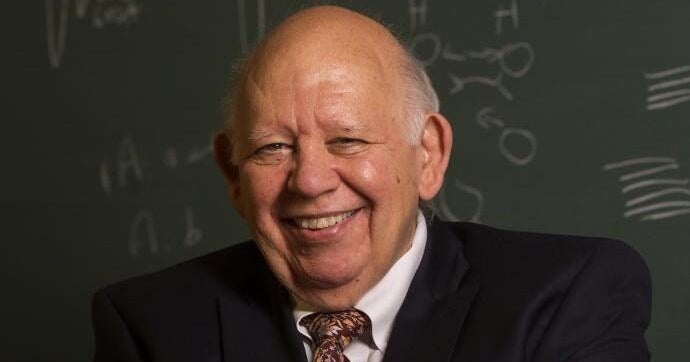University of California Santa Cruz fires grad students who are striking for higher wages, union says
Update: Soon after the publication of this story, the union representing University of California graduate students said in a press release that at least 54 graduate students at University of California Santa Cruz who were striking received termination letters. This story has been updated to reflect that change.
At the University of California, San Diego, third-year Ph.D. student Eleanor Castracane said she works up to 50 hours a week teaching 24 undergraduate students, grading assignments, and conducting research. Second-year Ph.D. student Adam Cooper said he's done the same, on top of attending class, and has worked daily since January 6. Both make less than $31,000 a year after taxes and struggle to afford rent, they said — and now, they could lose their jobs as they fight to earn a living wage.
That's what happened at the University of Santa Cruz on Friday, according to the union representing University of California graduate students. According to the union and UC Santa Cruz's student newspaper, 54 striking students at UC Santa Cruz received letters firing them from their spring semester teaching assistant (TA) appointments.
According to the termination letter, students will officially be dismissed on March 26.
"This action is based on abandonment of your job responsibilities by failing to submit student grades well past the fall quarter deadline..." the termination letter reads. "Your abandonment and sustained dereliction of your job responsibilities as a Teaching Fellow constitutes serious misconduct. Your conduct has harmed graduate students and disrupted University operations."
The students have been striking over what they say is inadequate compensation from the university. The average salary of UC-employed graduate students is $21,000 per year, according to UAW 2865, the graduate student union.
All 19,000 UC student employees who are part of UAW 2865, according to the union, are considered rent-burdened by the U.S. Department of Housing and Urban Development's (HUD) guidelines. That means they spend more than 30% of their income on housing. These students typically spend up to 60% of their pre-tax income on housing costs, the union said.
The "COLA 4 All" movement started at UC Santa Cruz in November 2019, when approximately 200 graduate students withheld thousands of grades. Since February 10, UC Santa Cruz graduate students have been on strike with support from undergraduates and faculty members, according to Castracane. As an elected union officer, Castracane added that she "cannot condone any action that violates our contract" and that her support for the cost of living adjustment is done outside her capacity as a union officer.
The UC San Diego graduate student body has also been active in the movement since February 10, holding rallies, sit-ins, and marches in support. Every campus in the UC system is asking for a monthly stipend adjustment based on the specific needs of their respective students.
To determine the value of the adjustment, the union considered every UC campus' average monthly graduate student housing cost, assumed students would spend 29% of their income on rent, and included the mandatory fees graduates are required to pay the school.
Some student activists are asking for even smaller adjustment amounts. UC Santa Cruz activists, according to their campaign website, are asking for $1,412 to fund nine months of rent in a housing unit with at least three bedrooms in Santa Cruz County.
Andrew Gordon, the Associate Director of Media Relations at the University of California, told CBS News in a statement that the university values graduate students and that teaching assistants, readers, and tutors are "essential to UC's teaching mission." However, he said, "that mission is in jeopardy when teaching assistants represented by the United Auto Workers (UAW) refuse to fulfill their teaching obligations by withholding grades and not teaching classes."
According to the school, the four-year contract with UAW expires in 2022 and includes "fair pay and excellent benefits," such as a tuition waiver, annual wage increases of 3% over four years, a one-time payment of $100 for eligible employees, and an annual $300 campus fee remission.
"The University is sympathetic to such challenges, particularly housing, and the related impacts on all our employees," Gordon wrote. "Affordable housing has been an important priority for the University and we are making strides systemwide. All UC student housing is below market rate, and we're building more of it."
On Friday, before the firings were announced, the student union announced they filed an unfair labor practice charge against the university, saying "it's clear UC wants to create an appearance that it is respecting graduate student employees while avoiding true bargaining where the law requires the parties to stand with equal footing and to act in good faith."
A GoFundMe page for UCSC strikers, which is raising money for strike supplies and those who may not be paid during the strike, says, "The UCSC chancellor makes over $400,000 a year [1] AND receives a $6,500 housing stipend per month, meanwhile graduate students have to live in one of the most expensive cities in the country [2] on less than $25k a year."
The group has raised more than $122,100 as of February 28.
For Castracane, the potential adjustment is vital. She currently has to allocate 52% of her income to pay her rent and has to take an hour-long bus ride to and from the campus. Despite her master's degree, she is making minimum wage.
"I haven't taken a break (sans sick days) since the holidays," she said. "…They can pay us so little because we're classified as students."
Cooper added that the situation negatively impacts the mental health of students.
"It's hard to be an effective educator when you have people living on rice/beans, or taking 1hr+ public transit," he said. "I've slept in my office once and have a sleeping bag there just in case. Me and my friend bought hammocks and took naps during a summer study where we did 12-hour days for pretty much two months straight."
Many students have tweeted similar experiences.
Cooper said that graduate students do the work because they love it, but that their ability to live healthily should not be compromised because of their passion.
"That's the worst thing about this in the UC system — this is the best public university in the world. People work their a**es off to come here and the administration knows it, so they don't need to recruit people with compensation."
Wildcat strikes — labor stoppages that have not been authorized by union leadership — have already commenced at a few UC campuses. UC Santa Cruz students are withholding fall grades; UC Davis graduate students are refusing to submit grades; and UC Santa Barbara graduate students are refusing to teach. Those at the UC San Diego campus are still determining how many people would support a strike.
If Cooper were to refuse to teach, he said, it would "effectively shut down" his class. Refusing to grade mostly impacts the administration, but he said that striking students would release grades for people on a case by case basis, especially for those who need the grades for scholarships and graduation.
The campaign for livable wages has generated significant support — even from Senator Bernie Sanders. The presidential candidate tweeted that he 'strongly urges' the president of the UC system to stop threatening students.
Castracane said she's surprised by the level of support the students have received. "If you had asked me a month ago if we'd have this level of publicity and support...I never would have believed it," she said.






